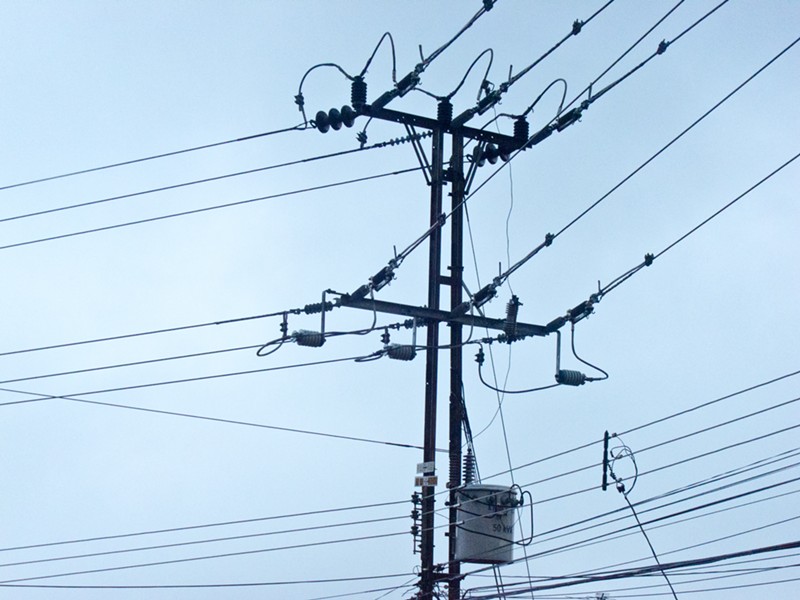When the police showed up, they saw one individual loading the stolen copper while another walked away from the scene. That’s when the U-Haul sped away, initiating a pursuit. The chase ended shortly, and three people were arrested. The police said the thieves were trying to get away with $10,000 worth of copper. The investigation revealed that they may have used a saw to cut the copper from a utility pole.
Copper thefts like this have been causing service disruptions in North Texas and across the country. In July, another thief was stealing copper in Dallas on Marsh Lane in broad daylight around 1:30 p.m. The police later arrested and charged a man named Carlos Soto for stealing the copper valued at less than $20,000. The copper belonged to AT&T. Then, on Aug. 9, a man by the same name was arrested for attempting to steal copper in the city.
There are a number of reasons copper is stolen, but it’s mostly so it can be resold to scrap yards for cash, Melinda Gutierrez, a spokesperson for the Dallas Police Department, said. “A victim must then replace the item, which can be costly, and is an inconvenience,” Gutierrez said.
Recently, AT&T blamed service outages in two Tarrant County communities on local copper thefts. According to NBCDFW, customers reported experiencing days and weeks without service.“We actively work with local law enforcement as they investigate to find those responsible.” – AT&T
tweet this
“Theft and vandalism of critical communications infrastructure are serious matters that disrupt essential services for our customers, public safety and the community at large,” an AT&T spokesperson said in a written statement to the Observer. “We actively work with local law enforcement as they investigate to find those responsible.” The time and cost to repair service lines vary among incidences, depending on factors like the type of copper stolen, how much was removed and where it was taken from.
The company is offering a reward of up to $10,000 for specific and detailed information that leads to the arrest and conviction of copper cable thieves and of those attempting to sell or purchase stolen copper from AT&T in the Dallas area. It also said maintaining uninterrupted and high-quality service is a top priority, and that it continues to upgrade customers where possible to newer, more reliable technologies, such as fiber and wireless.
The FBI released a report in 2008 on copper thefts detailing the people behind them and their potential motives. Reached for comment, the agency didn’t have more updated information to provide. But, a spokesperson for the FBI said in an emailed statement that it is aware of an increased trend of copper theft in the U.S. The FBI’s Major Theft Program investigates any significant theft of precious and/or base metals where there is a violation of federal law or when assistance is requested by state and local law enforcement partners, the spokesperson said.
According to the agency’s 2008 report, copper thieves threaten critical infrastructure in the U.S by targeting electrical substations, cellular towers, telephone landlines, railroads, water wells, construction sites and vacant properties. The thefts can cause disruptions in the flow of electricity, telecommunications, transportation, water supply, heating, and security and emergency services. This presents a risk to both public safety and national security, according to the FBI.
For example, in April 2008, five tornado warning sirens in Jackson, Mississippi, did not sound because thieves had stripped the sirens of copper. The month before, 4,000 Florida residents were left without power after copper wire was stripped from an active transformer. The theft amounted to about $500,000 in damages.
Copper thieves can be individuals or organized groups with several members. “Organized groups of drug addicts, gang members and metal thieves are conducting large-scale thefts from electric utilities, warehouses, foreclosed or vacant properties, and oil well sites for tens of thousands of dollars in illicit proceeds per month,” the FBI report said.
Locally, copper thefts are generally addressed as misdemeanors so individuals behind them will pay relatively low fines and serve short jail sentences.
Demand for copper in both China and India helped create a robust international copper trade that has been exploited by thieves, according to the FBI. The demand for copper and economic hardships partially brought on by the 2008 housing crisis helped drive the thefts, and the price of copper on commodities markets has only gone up since then. In September 2008, a pound of copper traded for $2.88; the price in August 2024 was around $4.15, according to the website Trading Economics.
“Current economic conditions, such as the rising cost of gasoline, food, and consumer goods, the declining housing market, the ease through which copper is exchanged for cash, and the lack of a significant deterrent effect, make it likely that copper thefts will remain a lucrative financial resource for criminals,” the FBI report said at the time. The agency must have been right because the copper thefts continue today.
Gutierrez of DPD said there are ways people can help combat copper theft. They should install security cameras and alarm systems, provide more lighting in the area and paint copper components black to look like plastic. You may mistake a thief for a worker with a service provider, Gutierrez said. “If you see workers, look for identification,” she said. “If they do not have identification, report them.”













